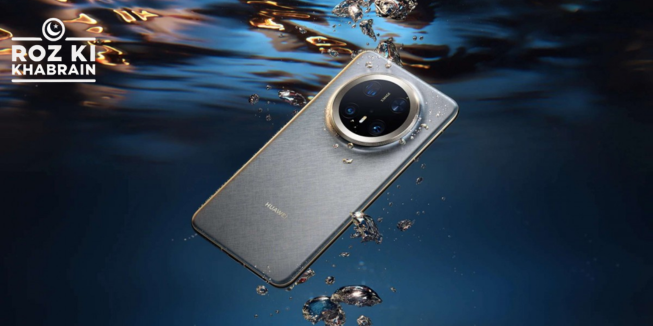The Mate 70, Huawei’s latest flagship smartphone, succeeds the Mate 60 series launched in August last year. This release is seen as a major step in Huawei’s return to the high-end smartphone market, directly competing with Apple after suffering setbacks from U.S. export restrictions.
The launch coincides with reports of the U.S. preparing new export controls that could blacklist up to 200 Chinese chip companies, further limiting their access to American suppliers, according to Reuters.
Described as “the most powerful Mate phone ever” by Richard Yu, chairman of Huawei’s consumer business group, the Mate 70 series was unveiled at an event in Shenzhen, which was streamed live and showcased in Huawei stores.
Read more: Harmony OS: Huawei aims for 100,000 apps on its Android alternative within a year.
The phone is powered by HarmonyOS NEXT, Huawei’s completely Android-free operating system. This new platform marks a shift away from reliance on U.S. technology and is part of Huawei’s long-term strategy to build an independent software ecosystem. The company has already secured over 15,000 applications for HarmonyOS and plans to expand to 100,000 apps soon. Despite this, Huawei maintains Android compatibility as a fallback option to allow more time for HarmonyOS NEXT to mature and for the developer ecosystem to grow.
The Mate 70 series offers users the choice between HarmonyOS 4.3, which supports Android apps, and the Android-free HarmonyOS NEXT 5.0. Richard Yu also confirmed that starting next year, all Huawei phones and tablets will exclusively run the Android-free HarmonyOS.
Advanced Chips and Market Impact
Teardown analyses suggest the Mate 60 and Mate 70 series use advanced chips developed by Semiconductor Manufacturing International Corporation (SMIC), showcasing China’s progress in semiconductor technology despite Western trade restrictions. Huawei has not officially disclosed details about its chips, which are typically revealed later through independent analyses.
Some Mate 70 models reportedly feature Huawei’s Kirin 9100 chipset, produced by SMIC. However, production challenges may limit this chip to high-end variants, according to a source familiar with the matter. Huawei has not commented on the chipset details.
The Mate 70’s launch has stirred patriotic enthusiasm in China, bolstering Huawei’s market resurgence and intensifying its competition with Apple. In the third quarter of 2024, Huawei ranked as China’s second-largest smartphone vendor, shipping over 10 million units for the fourth consecutive quarter, a significant recovery from mid-2022 when shipments fell to 4.1 million units. Analysts project Mate 70 series shipments to exceed 10 million units, reflecting Huawei’s growing momentum.




